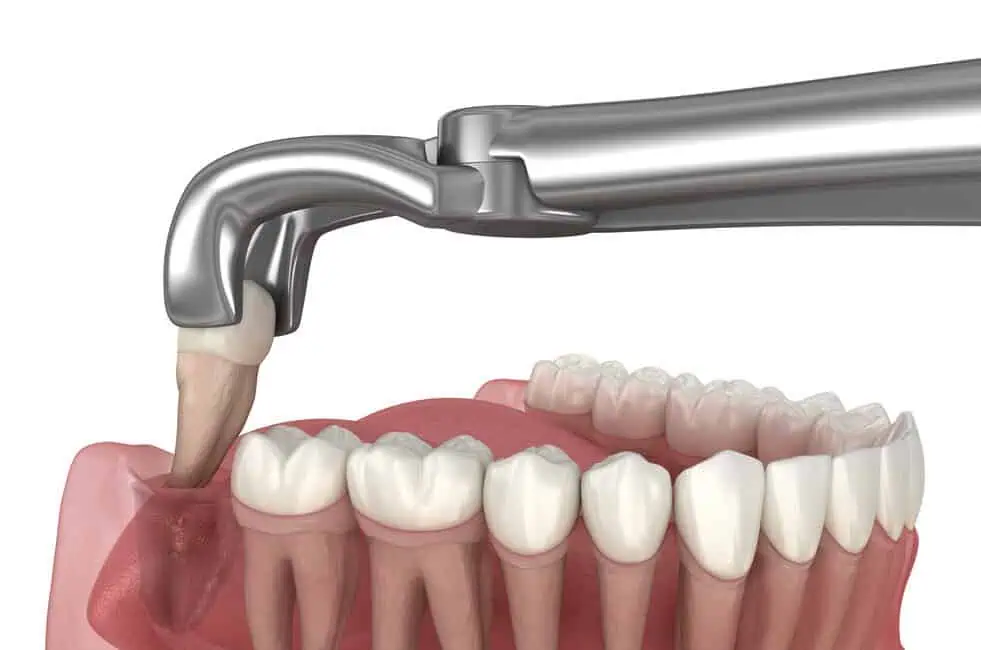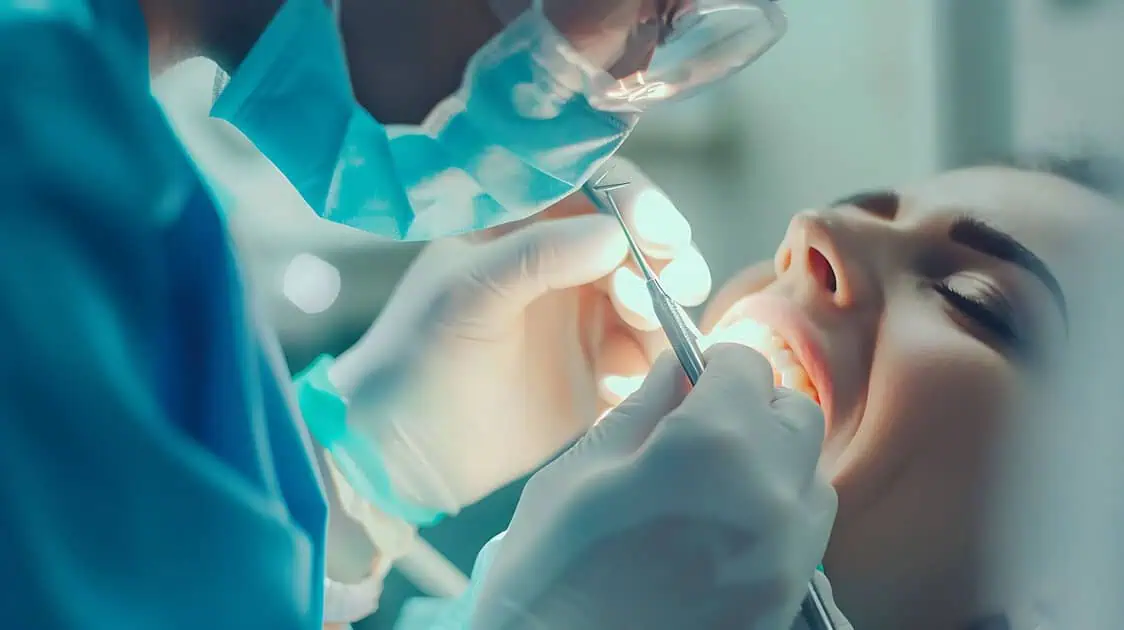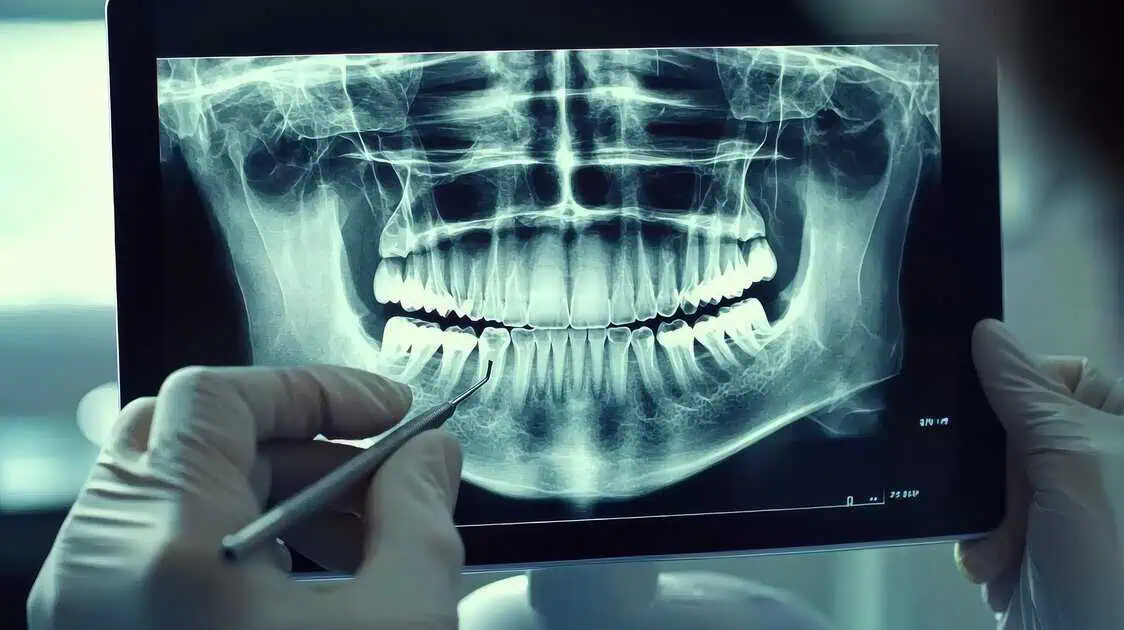Table of Contents
Replacing missing teeth is a significant decision that can greatly impact your oral health, confidence, and overall quality of life. If you’re torn between dental implants and traditional dentures, we are here to help.
This blog is designed to provide you with a detailed comparison of these two tooth replacement options. It offers information that will empower you with the knowledge to make the best choice for your unique needs. Keep reading to discover how these transformative treatments can improve your smile and quality of life.
Comparing the Two Options
Choosing between dental implants and traditional dentures requires an understanding of how they perform in key areas such as durability, comfort, and aesthetics. Each option offers unique advantages. The table below highlights their differences to assist you in making an informed decision.
| Feature | Dental Implants | Traditional Dentures |
| Durability | Lifetime with proper care | 5-10 years on average |
| Comfort | Feels like natural teeth | May cause irritation or discomfort |
| Stability | Fixed and secure | May slip or shift |
| Bone health | Prevents bone loss | Does not prevent bone loss |
| Cost | Higher upfront cost | Lower initial cost |
| Maintenance | Similar to natural teeth | Requires special cleaning |
| Aesthetic | Natural look and feel | May look less natural |
Dental Implant Benefits
Opting for dental implants offers numerous advantages over traditional dentures:
- Permanent tooth replacement ensures long-term functionality and confidence.
- Long-lasting tooth replacement minimizes the need for frequent replacements or adjustments.
- The dental implant procedure promotes better oral health by preventing bone loss and preserving jaw structure.
- Non-removable dentures eliminate the hassle of adhesives and slippage, making daily life more convenient.
The Dental Implant Procedure: Step-by-Step
Several steps are involved in a typical dental implant procedure. It aims to ensure a stable and natural-looking replacement for missing teeth. Here is how it unfolds:
- Initial Consultation: In your initial visit, your dentist will assess your oral health. They will also take X-rays and discuss your goals. All of these help determine if you are a good candidate for dental implants. This is also when treatment planning begins.
- Preparation: If necessary, preliminary procedures like tooth extractions, bone grafting, or sinus lifts may be performed to create a strong foundation for the implants.
- Implant Placement: This involves surgically embedding a titanium post into the jawbone. The latter serves as the tooth’s root. The procedure is done under local anesthesia or sedation to maximize comfort for the patient.
- Osseointegration: After the implant is placed, the jawbone gradually integrates with the titanium post over 3-6 months. This fusion creates a solid and reliable foundation for the replacement tooth.
- Abutment Placement: Once the implant has bonded with the bone, a small connector piece called an abutment is affixed to the implant. This links the implant and the restoration that will be attached.
- Crown or Prosthetic Attachment: A custom crown, bridge, or denture is designed to match your natural teeth. This prosthetic is then securely attached to the abutment, completing the process.
- Follow-Up Care: Ongoing dental check-ups and proper oral hygiene are necessary for the longevity of your dental implants. Your dentist will offer guidance on maintaining both your implants and overall oral health.
Dental Implants: A Permanent Solution
Dental implants are a modern and long-lasting option for replacing a patient’s missing teeth. They involved a titanium post surgically implanted into the jawbone. The latter acts as a root for a replacement tooth or a set of teeth. A crown, bridge, or non-removable denture is then attached to the implant, providing a natural look and feel.
Key Features of Dental Implants
- Durability: Dental implants are expected to last a lifetime. This is achievable with proper care, making them a cost-effective choice over time.
- Stability: Dental implants are very stable since they are anchored securely to the jawbone. This feature prevents slippage or movement while eating or speaking.
- Bone Health: Implants stimulate the jawbone, preventing bone loss and preserving facial structure.
- Natural Appearance: They closely mimic the look, feel, and function of natural teeth.
- Maintenance: Caring for implants involves regular brushing, flossing, and dental checkups—just like natural teeth.
Traditional Dentures: A Removable Option
Traditional dentures are removable prosthetic devices. Like dental implants they replace missing teeth. They rest on the gums and are custom-fitted to the mouth. Dentures can be either full (replacing all teeth) or partial (replacing some teeth), depending on the patient’s needs.
Key Features of Traditional Dentures
- Affordability: Dentures are often more cost-effective upfront than implants, making them a budget-friendly choice.
- Non-Surgical: Unlike dental implants, dentures don’t require surgery, making them a less invasive option.
- Quick Solution: Dentures can often be fitted and provided in a shorter timeframe than implants.
- Adjustability: They can be relined or adjusted over time to maintain fit as the mouth changes.
Types of Dental Implants and Traditional Dentures
When considering dental implants or traditional dentures, it’s important to understand the different types available to suit individual needs and preferences.
Types of Dental Implants:
- Single-Tooth Implants: Ideal for replacing a single missing tooth. The implant is paired with a custom crown for a seamless look.
- Implant-Supported Bridges: Used when multiple adjacent teeth are missing. The bridge is anchored by implants, providing a durable solution without relying on surrounding teeth.
- All-on-4 Implants: These implants are a revolutionary option for replacing a complete arch of teeth. As the name implies, the procedure only uses four strategically placed implants. This method is efficient and provides maximum stability.
- Mini Dental Implants: The implants are a smaller version of traditional implants. They suit patients with less bone density or those requiring a less invasive procedure.
Types of Traditional Dentures:
- Full Dentures: The dentures can replace all teeth in one’s upper or lower jaw. Full dentures rest directly on the gums. They are completely removable for cleaning.
- Partial Dentures: Designed for patients who still have some natural teeth. They consist of a metal or plastic framework with artificial teeth attached.
- Implant-Supported Dentures: While classified as a type of denture, these rely on implants for stability, blending the benefits of both solutions.
- Immediate Dentures: Created in advance and placed immediately after teeth removal. They provide temporary functionality while the gums heal.
Understanding these options can help patients choose a solution tailored to their oral health, lifestyle, and budget.
Choosing the Right Option for You
The choice between dental implants and traditional dentures depends on various factors, including your oral health, budget, and personal preferences. While dental implants provide a more permanent and natural solution, traditional dentures offer an affordable and non-invasive alternative.
Consulting with a dental professional is essential to determine the best option for your needs. They can evaluate your oral health, discuss your goals, and help you weigh the pros and cons of each solution.
24th Street Dental Biltmore Dental Implants
At 24th Street Dental Biltmore, we specialize in providing high-quality dental implants in Phoenix, AZ. Our team is dedicated to offering personalized care and advanced techniques to ensure optimal results. Here’s what sets us apart:
- Comprehensive Care: From consultation to post-procedure follow-ups, we guide you through every step of your dental implant procedure.
- State-of-the-Art Technology: We use cutting-edge equipment to ensure precise implant placement and long-lasting outcomes.
- Customized Solutions: Whether you need a single implant, a bridge, or non-removable dentures, we tailor our approach to meet your unique needs.
Want to learn more about dental implants? Call us to book your consultation!
Frequently Asked Questions
Can I get dental implants if I have existing health conditions?
Yes, most patients with controlled health conditions are eligible for dental implants. However, it’s essential to inform your dentist about any medical issues such as diabetes, heart disease, or osteoporosis during your consultation.
How long does the dental implant procedure take?
The dental implant procedure typically occurs in multiple stages over a few months. After the implant is placed into the jawbone, a healing period of 3-6 months is required for osseointegration (bone fusion).
Are dental implants painful?
While the idea of surgery may seem daunting, the procedure itself is generally well-tolerated. Local anesthesia or sedation is used during the implant placement, minimizing discomfort.
What happens if I don’t have enough bone for implants?
Patients with insufficient jawbone density may still qualify for dental implants through additional procedures such as bone grafting or sinus lifts.
Can dental implants replace multiple teeth?
Absolutely! Dental implants are versatile and can support individual crowns, bridges, or non-removable dentures. This feature makes dental implants suitable for replacing one tooth, several teeth, or even a full arch.
How do I care for my dental implants?
Caring for dental implants is similar to maintaining natural teeth. Regular brushing, flossing, and routine dental checkups are essential to keep your implants and surrounding gum tissue healthy. Avoiding habits like smoking can also enhance the longevity of your implants.







